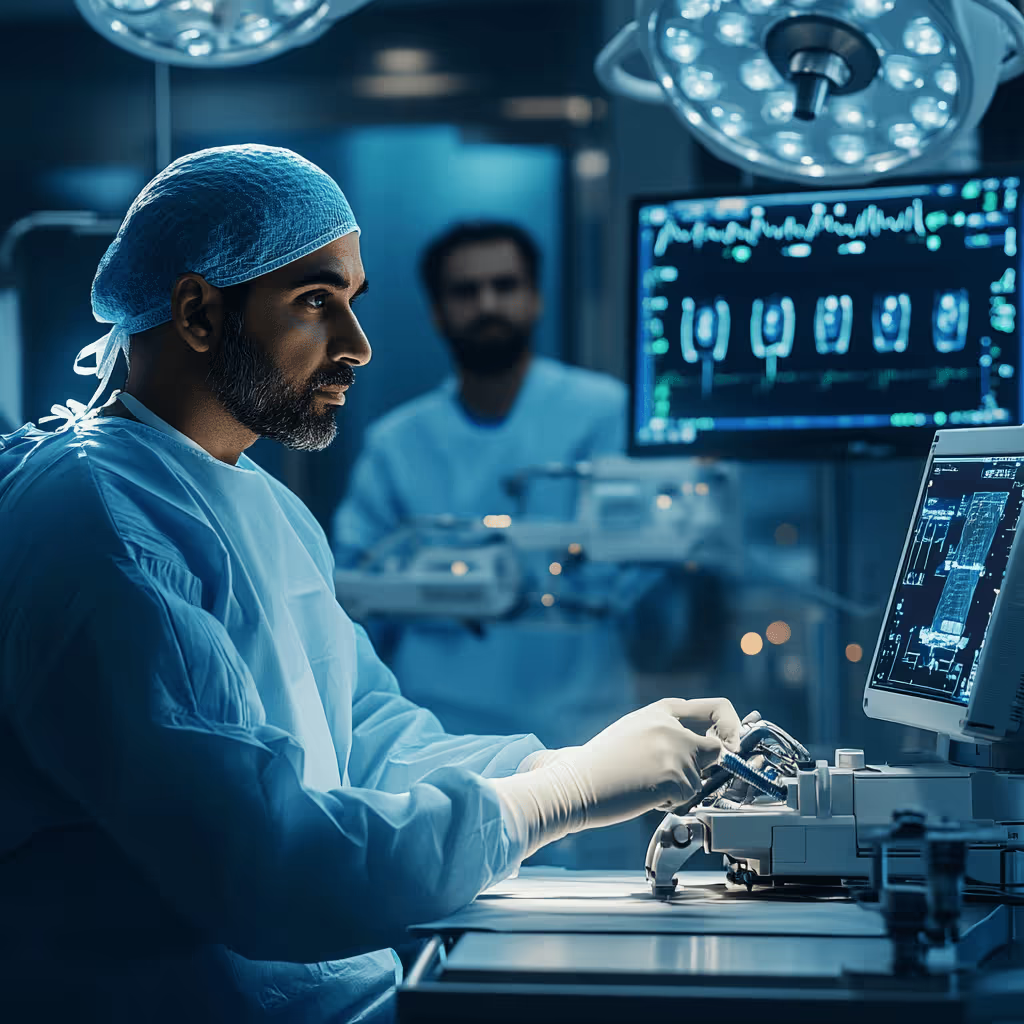February 5, 2025

Artificial intelligence and robotics are becoming increasingly embedded in modern medicine. AI-powered systems can analyze medical data faster than human doctors, improving diagnoses and treatment planning. Surgical robots assist in complex procedures, offering greater precision and control. Virtual health assistants help streamline patient care, making healthcare more efficient. These advancements raise an important question: will robots and AI eventually replace doctors, or will they remain tools to support medical professionals?
Technology has already transformed the way doctors diagnose and treat patients. AI models can detect diseases in medical imaging with high accuracy, sometimes outperforming human radiologists. Machine learning algorithms predict patient outcomes and recommend treatments tailored to an individual’s genetic profile. Robotics are now standard in operating rooms, with systems like the Da Vinci robot enhancing a surgeon’s ability to perform minimally invasive procedures. While these innovations continue to evolve, the idea of replacing doctors entirely remains controversial.
Despite rapid advancements in AI, medical experts agree that technology alone cannot replace doctors. While AI can analyze vast amounts of data and provide clinical insights, it lacks human judgment, adaptability, and empathy. AI systems operate based on programmed knowledge and patterns, but real-world medicine often requires intuition, ethical decision-making, and understanding of patient emotions; skills that machines cannot replicate.
Dr. Anthony Komaroff of Harvard Medical School points out that AI is already assisting doctors in areas like diagnostics and treatment recommendations, but it does not replace their expertise. The patient-doctor relationship remains central to healthcare, as trust and communication play a vital role in successful treatment. While AI can enhance efficiency, doctors must oversee and interpret AI-generated findings to ensure accuracy and personalized care (Source).
In surgery, robotic systems are improving precision and reducing recovery times for patients. Urologist Roberto Ballestero Diego predicts that in the next decade, surgical robots will be available for every specialty and condition. However, these systems do not operate independently; they function as tools controlled by human surgeons. Robotic-assisted procedures rely on a surgeon’s expertise to guide complex movements and respond to unexpected complications. While AI-driven automation is advancing, fully autonomous surgical robots are still far from reality (Source).
Even as robotics become more sophisticated, surgeons will continue to be essential. The ability to adapt to unforeseen surgical challenges, make real-time decisions, and interact with patients before and after procedures ensures that human expertise remains indispensable.
The future of healthcare is not about replacing doctors but about creating a collaboration between human intelligence and artificial intelligence. AI will continue to advance in diagnostics, treatment planning, and predictive analytics. Robotics will further improve precision in surgery and other medical procedures. But healthcare is more than just data and algorithms—it is about patient care, ethical decision-making, and human connection.
Technology will change medicine, but doctors will remain at the heart of healthcare. The role of medical professionals will evolve, focusing on interpreting AI findings, making critical decisions, and ensuring compassionate care. While robots and AI will enhance efficiency and accuracy, the human touch will always be essential in medicine.
Join our weekly digest and be the first one to know about new articles.